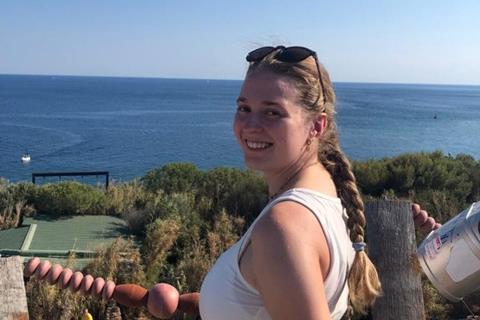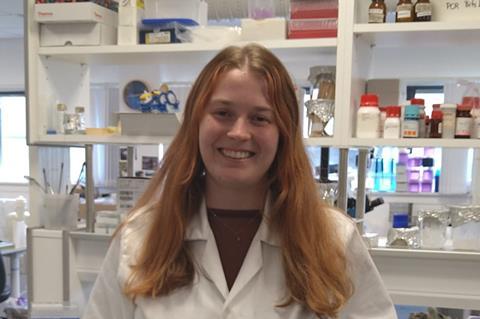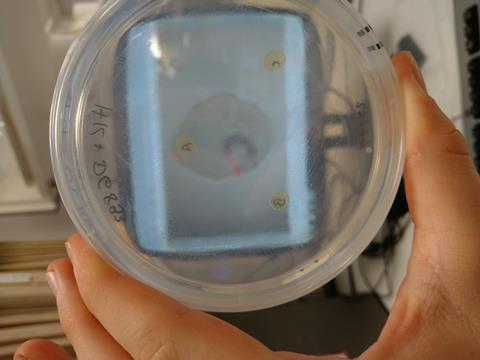Helen Kehoe (22) has made some very intriguing findings during her Applied Microbiology International-supported summer placement investigating the potential for bacteria to become biocontrol agents for seaweed aquaculture.
Born in southern Germany, she studied marine science in Oban at the Scottish Association for Marine Science (SAMS), University of the Highlands and Islands and has recently graduated.

Her placement was with her own university and was a continuation of what she researched for her dissertation, supervised by her dissertation supervisor Dr David Green. Helen also pays tribute to Frederick deBoever for his support, particularly with the statistics for her data.
She says:
The overarching goal of our project was to study the seaweed microbiome – particularly which bacteria naturally compete with each other.

I spent most of my time in the lab growing my isolated bacteria on agar plates and in liquid media, and combining them with prey to see what’s on their menu! I used a variety of methods, namely performing predator-prey assays, but also plate reader experiments to measure fluorescence and optical density, microscopy, PCRs, and more to find the perfect method to “quantify the killing” by my bacterial predators.
READ MORE: Scientists find new eco-friendly source of nanoparticles in edible seaweed
READ MORE: Could deep sea mining destroy the treasure trove of biomedical compounds yet to be found?
Our research contributes to solving big issues like diseases in seaweed aquaculture. A lot of the prey our bacteria enjoy are known seaweed aquaculture pathogens and they could therefore potentially be used as a kind of natural biocontrol agent, or probiotic, if a seaweed farmer is struggling with a disease outbreak.
We isolated, successfully cultivated, and described five bacteria that seem to grow very happily on a variety of pathogenic prey. Additionally, we found out that they each seem to have quite specific prey preferences such as gram-positive or gram-negative prey, meaning we could target pathogens quite selectively.
Opportunist discovery
What I found particularly interesting was that we seem to have found an organism that may be both beneficial to seaweed health and pathogenic depending on the situation – a real opportunist.

Having found such promising results in a relatively short amount of time means the methods we tested could possibly even be used beyond only seaweed and the use of probiotics discovered in this way could become a standard practice in all sorts of aquaculture departments – shellfish, finfish, etc., and replace, or at least supplement, the use of medications and chemicals.
Next up is some statistics and writing up and then hopefully a publication. I am also hoping to continue this project in a master’s project to find out how this idea could be realised in situ.
My least favourite job in the lab? The nerve wrecking journey of carrying a freshly prepared well plate to a plate reader after spending hours loading it.
To find out more about AMI’s Grants and Awards Programme, click HERE.







No comments yet